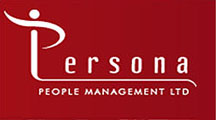When a conflict between team members escalates into a dispute communication becomes difficult, relationships break down and team dynamics are adversely affected. Organisation Development is a great way to diffuse conflict and put in place a blueprint for how the team can deal with difficult circumstances effectively before they become a major issue requiring formal grievance and disciplinary procedures.
Case Study
Background: A growing business operating within a fast paced market needed to expand one of its teams to cope with demand and inject new ideas to gain business advantage. A young and eager new member joined a well-established team predominantly made up of experienced, older individuals.
Issue: The new team member was slightly over-confident, keen to stamp their mark on the team and the business as a whole and challenged the authority of a particular team member. The existing team member felt sidelined and vulnerable, they reacted by forcing established ideas on to the new team member, and being inflexible to new ways of working. This personal conflict spilled over into the rest of the team who responded negatively to both individuals and performance suffered as a result.
Solution: The OD consultant worked with both individuals to de-escalate the immediate conflict and help them realise how their behavior was affecting both their individual performance and that of the team as a whole. They learned to gain a mutual respect for each other and how by embracing their individual differences and ways of working the team would benefit. The OD consultant then worked with the team as a whole to help them identify triggers that can cause conflict, learn how to diffuse difficult situations and use their differences to mutual advantage.
Result: A template for team behavior was established taking into account the individual skills, experience and goals of each individual member. The template included principles of good communication, managing conflict, dealing with change and unexpected situations, how to embrace new ideas and how to work collaboratively to meet goals. The team flourished as a result. Positivity was restored and both individual and team performance was improved. They became better at coming up with new ideas, more resourceful when faced with challenges and better equipped to bounce back when things went wrong.
For more information on how Organisation Development can benefit your business please contact me on 0870 066 0844. Or read more from the following:
- Effective Teamwork: Practical Lessons from Organizational Research (Psychology of Work and Organizations) by Michael A. West
|



